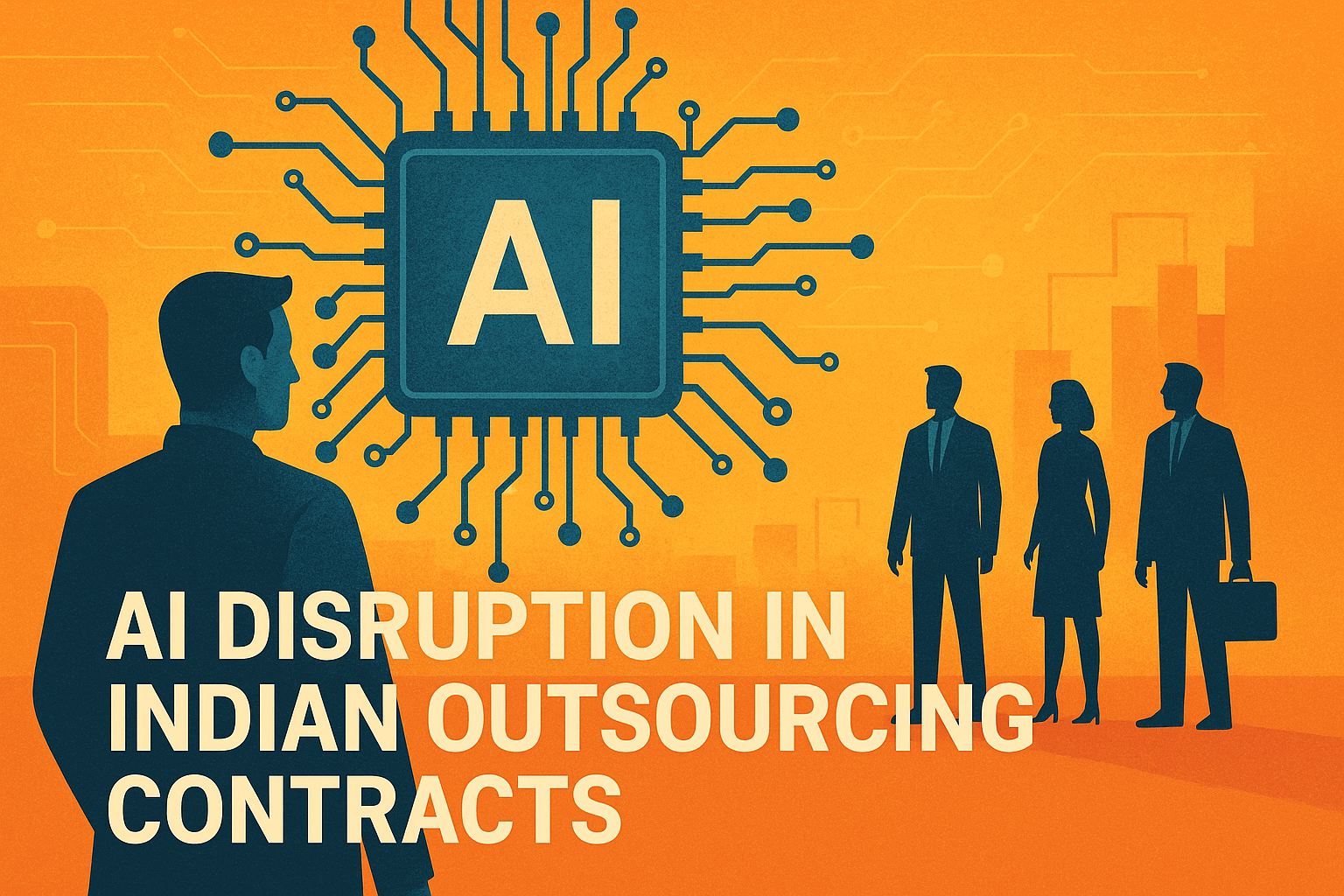The Age of AI: Redrawing the Rules of IT Engagement
Global corporations are rapidly reimagining their outsourcing playbooks in the wake of artificial intelligence’s transformative rise. For India’s $280 billion IT services industry—long reliant on labor-intensive, fixed-price contracts—the disruption is palpable. AI, with its promise of faster execution and leaner teams, is fundamentally challenging the full-time equivalent (FTE)-based billing model that has defined outsourcing for decades.
Gone are the days when companies locked into year-long fixed-price deals based on headcount. Instead, a new model is gaining traction: time and material (T&M) contracts. These flexible agreements bill clients based on actual hours worked and resources consumed, allowing them to test AI’s impact before locking in traditional deals.
Corporates Shift to T&M Contracts: Testing AI’s Waters
The change isn’t just theoretical—it’s showing up in boardrooms and earnings calls.
Tata Consultancy Services (TCS) CEO K. Krithivasan revealed during a July 10 earnings call that many clients are preferring T&M contracts upfront. “There are some contracts where we do based on the outcome,” he said. “Customers believe it’s better to do it on T&M first… and then move towards fixed-price.”
Clients want to evaluate whether AI solutions actually deliver accelerated timelines and efficiency gains. By avoiding upfront commitments, T&M lets them experiment without long-term risk. This model also puts service providers under pressure to prove that AI can do more with fewer people—quickly.
LTIMindtree Sees Opportunity in AI-Led Engagement Models
The sentiment is echoed by Venu Lambu, CEO of LTIMindtree. He reported enthusiastic client responses toward transitioning from T&M to output-based or managed services models.
“Our clients are excited. They want to hear more from us,” Lambu said in a July 18 interview. LTIMindtree has responded by building AI-led solutions that can serve as the springboard for long-term, managed-service contracts—a significant pivot from the traditional labor-sourcing paradigm.
Revenue Metrics Reflect the Shift
Early signs of this pivot are visible in financials. TCS posted $7.42 billion in revenue for Q1 FY26, a modest 0.59% sequential dip. LTIMindtree, however, grew 1.97% to $1.15 billion.
Wipro’s revenue mix further illustrates the shift. The company’s fixed-price contracts shrank from 56% to 52% over the past year, while T&M contracts grew from 43% to 48%. The message is clear: flexibility and agility are overtaking predictability as priorities in IT partnerships.
Cost Pressures and AI Productivity Fuel the Change
Enterprise clients are under increasing pressure to cut costs, and AI offers an alluring path. According to Phil Fersht, CEO of HFS Research, companies want “lower prices from their service partners,” prompting a shift “from people-based effort to actual work delivered.”
In essence, clients want to pay for results, not headcount. And with AI tools automating manual tasks, service providers must adapt to deliver output-based services without bloating costs.
“If customers demand a 20% price cut, the only way the likes of TCS and LTIMindtree can deliver that—and maintain profit margins—is through AI,” Fersht noted. This reality is giving rise to what HFS dubs the “Services-as-Software” model, where billing is based on consumption, not employees.
Risks, Rewards, and Roadblocks
While the trend is gaining traction, not everyone believes it’s here to stay.
Peter Bendor-Samuel of Everest Group notes that while outcome-based models shift risk onto IT providers and incentivize productivity, their complexity may ultimately hinder widespread adoption. “It is unlikely to be a permanent trend… FTE or time-based models, which are far simpler, are likely to win out over time,” he said.
Adding to the uncertainty is the global macroeconomic landscape. Deferred client payments, cautious discretionary spending, and AI’s untested limits all loom large. For now, IT vendors are getting paid in staggered tranches—another sign of corporate wariness.
Conclusion: A Future in Flux
India’s IT sector stands at a crossroads. The AI revolution is forcing a rethink not just of technologies and tools, but of how value itself is priced and delivered. Time and material contracts are emerging as a gateway for cautious clients exploring AI, while outcome-based models remain aspirational and complex.
For service providers, this is both a challenge and an opportunity. Those who can deliver AI-led productivity without bloating headcount or sacrificing profits will be best positioned to thrive in this new era of intelligent, agile outsourcing.
In short, the old rules no longer apply. The future of IT services will be written not in fixed lines, but in the fluid code of innovation and adaptability.
Feel free to share your experiences and insights in the comments below. Let’s continue the conversation and grow together as a community of traders and analysts.
By sharing this experience and insights, I hope to contribute to the collective knowledge of our professional community, encouraging a culture of strategic thinking and informed decision-making.
As always, thorough research and risk management are crucial. The dynamic nature of financial markets demands vigilance, agility, and a deep understanding of the tools at your disposal. Here’s to profitable trading and navigating the election season with confidence!
Ready to stay ahead of market trends and make informed investment decisions? Follow our page for more insights and updates on the latest in the financial world!
For a free online stock market training by Yogeshwar Vashishtha (M.Tech IIT) this Saturday from 11 am – 1 pm, please sign up with https://pathfinderstrainings.in/training/freetrainings.aspx
Experience profits with my winning algo strategies – get a free one-month trial with ₹15 lakh capital! – https://terminal.algofinders.com/algo-terminal
Disclaimer
This article should not be interpreted as investment advice. For any investment decisions, consult a reputable financial advisor. The author and publisher are not responsible for any losses incurred by investors or traders based on the information provided.


